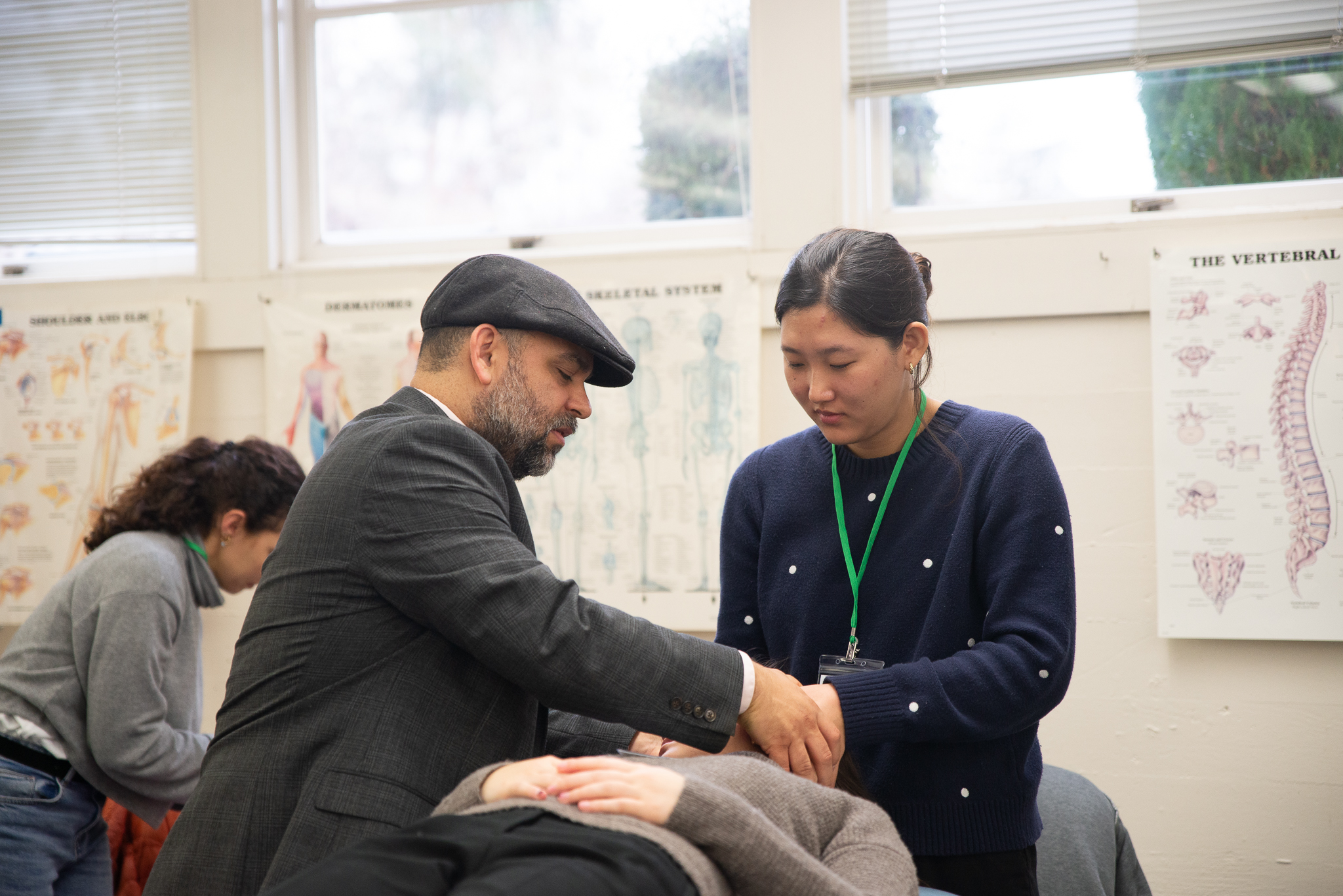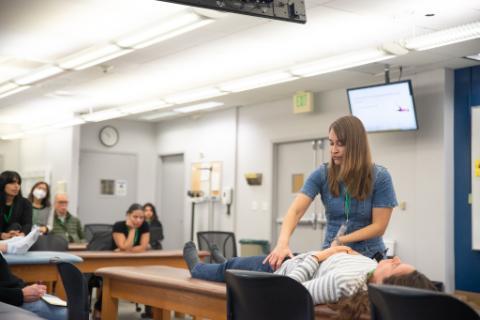Symposium Explores Approaches to Wellness
6th Annual Integrative Medicine Symposium returned in-person, with diverse tracks addressing the collective need for self-care, recovery, and well-being.

On Sunday, January 21st, attendees gathered at Lander Hall on the Touro University Campus for the Integrative Medicine Symposium, the first in-person event after three years of virtual gatherings.
It brought together health care providers, practitioners, and the broader community. Organized by students from Touro University California College of Osteopathic Medicine with the help of Professor Dr. Victor Nuño, the event delved into novel, and evidence/systems-based integrative approaches to health care.
The roots of the symposium trace back to a mini version held seven years ago, initially featuring a couple of lectures and healthy food served in the courtyard. Nuño said that the event originated from a need to explore integrative medicine, recognizing that medical schools often don’t cover the breadth of available information. Over the years, the symposium evolved, becoming more inclusive and student led.
“There’s a lot of medicine that we don’t teach in medical school,” said Nuño. “There’s just too much information out there to fit it all in, plus a lot of us practitioners have additional skills too. This is how we bring more insights and information.”
The symposium featured five tracks, each designed to contribute to the health and wholeness of attendees and their patients. Of note was the substantial osteopathic manipulative medicine (OMM) track with five speakers, demonstrating a commitment to hands-on treatment modalities.
What sets each symposium apart is not only its theme but also the individual style brought by the organizers.
 “I picked the theme of healing yourself because this is the first year that we're doing it in person,” said student doctor Jia-Min Ooi. “I thought we should bring the community back together because everyone was so isolated during COVID. I personally think everyone can use self-care, not just physicians.”
“I picked the theme of healing yourself because this is the first year that we're doing it in person,” said student doctor Jia-Min Ooi. “I thought we should bring the community back together because everyone was so isolated during COVID. I personally think everyone can use self-care, not just physicians.”
Nuño acknowledges the challenges in engaging the community, especially during the pandemic. While initiatives like Touro’s Student Run Free Clinic bring health care practitioners to the community, the symposium provides a unique opportunity for the community to interact at Touro University. The transition to virtual events brought both advantages and challenges. It allowed for a broader reach and inclusion of speakers from around the world, it posed difficulties for hands-on treatments like OMM.
This year’s symposium adopted a hybrid approach, blending in-person and virtual elements. Ooi said that they tried balancing the importance of in-person interactions with the benefits of virtual access to national experts.
For those who attended, the event was not just a symposium; it was a journey toward health, wholeness, and community well-being.
